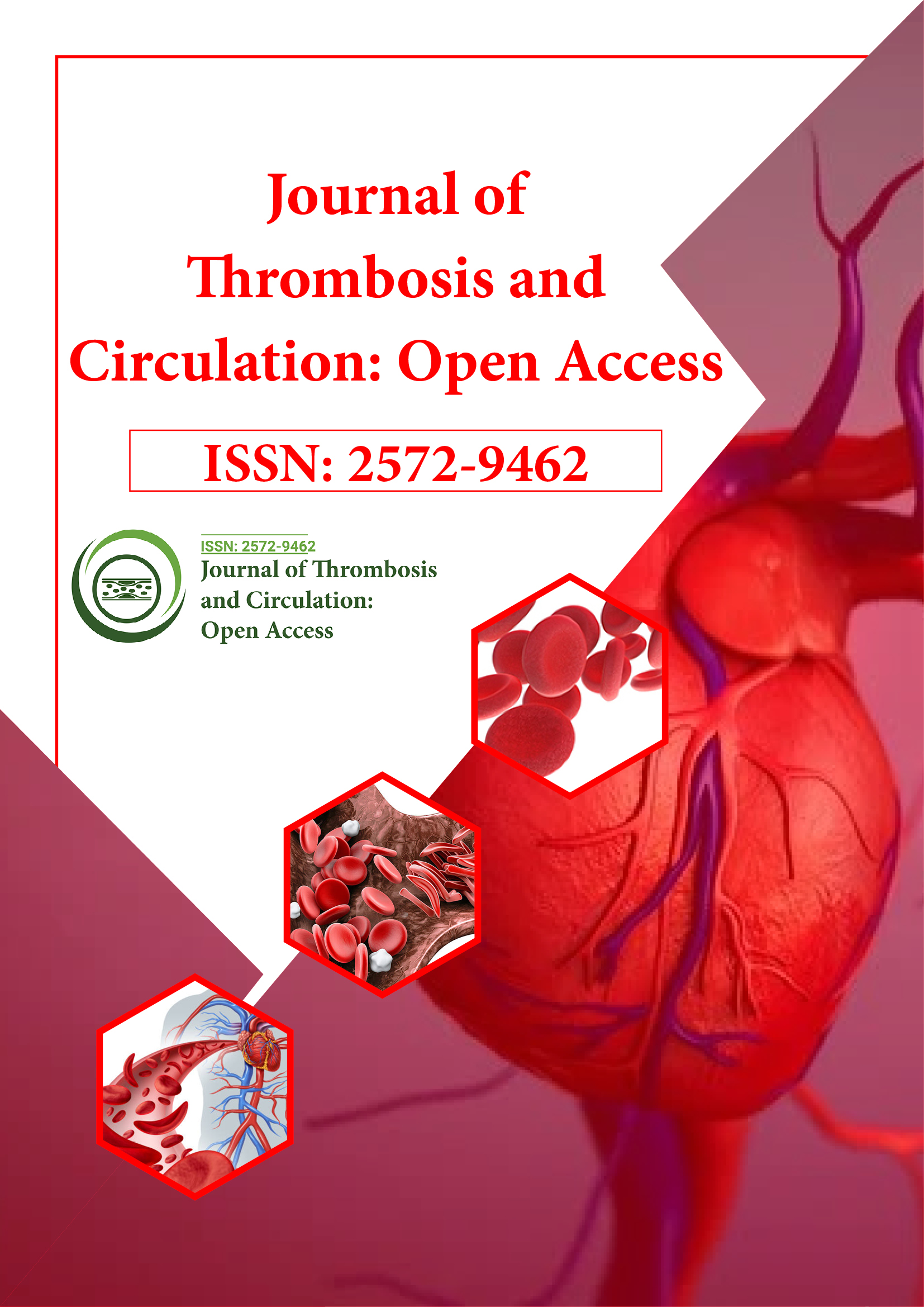Indexed In
- RefSeek
- Hamdard University
- EBSCO A-Z
- Publons
- Google Scholar
Useful Links
Share This Page
Journal Flyer

Open Access Journals
- Agri and Aquaculture
- Biochemistry
- Bioinformatics & Systems Biology
- Business & Management
- Chemistry
- Clinical Sciences
- Engineering
- Food & Nutrition
- General Science
- Genetics & Molecular Biology
- Immunology & Microbiology
- Medical Sciences
- Neuroscience & Psychology
- Nursing & Health Care
- Pharmaceutical Sciences
Commentary - (2023) Volume 9, Issue 6
Role of Anticoagulation in Comple Cases of Splanchnic Vein Thrombosis
Chan Akter*Received: 18-Oct-2023, Manuscript No. JTCOA-23-23828; Editor assigned: 20-Oct-2023, Pre QC No. JTCOA-23-23828 (PQ); Reviewed: 06-Nov-2023, QC No. JTCOA-23-23828; Revised: 13-Nov-2023, Manuscript No. JTCOA-23-23828 (R); Published: 21-Nov-2023, DOI: 10.35248/2572-9462.23.9.254
Description
Acute pancreatitis is a potentially life-threatening inflammatory condition of the pancreas, which can lead to various complications. One such complication is splanchnic vein thrombosis, which includes the thrombosis of the portal vein, mesenteric vein, and splenic vein. Splanchnic vein thrombosis in acute pancreatitis poses a significant challenge to healthcare providers due to its complex pathophysiology and potentially severe consequences. This article explores the importance of anticoagulation in managing splanchnic vein thrombosis in acute pancreatitis, the current guidelines and controversies surrounding anticoagulation therapy.
Splanchnic vein thrombosis in acute pancreatitis is a result of several interconnected factors. The inflammation of the pancreas can lead to the release of pro-inflammatory cytokines and other mediators that activate the clotting cascade. Furthermore, acute pancreatitis can cause local tissue damage and necrosis, promoting a prothrombotic environment. This combination of inflammation and tissue injury significantly increases the risk of developing thrombosis in splanchnic veins, leading to potentially life-threatening consequences such as mesenteric ischemia and portal hypertension.
Anticoagulation therapy in splanchnic vein thrombosis
Anticoagulation therapy is a potential treatment strategy for splanchnic vein thrombosis in acute pancreatitis. The goal of anticoagulation is to prevent the extension of existing thrombi, promote thrombus resolution, and reduce the risk of recurrent thrombosis. The decision to initiate anticoagulation should be based on a careful assessment of the patient's overall condition, the extent of thrombosis, and the potential risks and benefits.
Timing of anticoagulation: The timing of anticoagulation initiation remains a subject of debate. While some experts advocate for early initiation to prevent thrombus extension andrecurrent thrombosis, others argue that waiting until the patient's condition stabilizes may be safer, given the risk of bleeding associated with anticoagulation. Therefore, a case-by-case approach is often necessary.
Anticoagulant choice: Heparin and Low Molecular Weight Heparin (LMWH) are commonly used anticoagulants in the management of splanchnic vein thrombosis. Heparin's rapid onset of action makes it suitable for initial treatment, and LMWH is preferred for long-term therapy. Direct Oral Anticoagulants (DOACs) are emerging as potential alternatives, but more research is needed to establish their safety and efficacy in this specific context.
Duration of anticoagulation: The optimal duration of anticoagulation therapy in splanchnic vein thrombosis is not well-defined. Guidelines often recommend anticoagulation for 3-6 months, but individual factors, including the underlying cause of pancreatitis, extent of thrombosis, and the patient's risk of bleeding, should be considered in decision-making.
Controversies and challenges
The management of splanchnic vein thrombosis in acute pancreatitis remains a complex and challenging task for healthcare providers. Several controversies and challenges persist:
Risk of bleeding: Anticoagulation therapy carries a risk of bleeding, which must be weighed against the potential benefits of preventing thrombus extension. Patients with acute pancreatitis often have coagulopathy due to the underlying inflammatory process, making the decision to anticoagulate more intricate.
Lack of randomized controlled trials: The available evidence on the efficacy and safety of anticoagulation in splanchnic vein thrombosis in acute pancreatitis primarily consists of retrospective studies and expert opinions. The lack of randomized controlled trials limits the ability to establish clear guidelines.
Individualized approach: The heterogeneous nature of acute pancreatitis and splanchnic vein thrombosis means that there is no one-size-fits- all approach to anticoagulation therapy. Each patient's unique clinical situation and risk factors should be considered when making treatment decisions.
Splanchnic vein thrombosis is a severe complication of acute pancreatitis that demands careful consideration and treatment. Anticoagulation therapy remains an essential strategy in preventing the extension of thrombosis and reducing the risk of recurrence. However, the timing of anticoagulation initiation,choice of anticoagulant, and duration of treatment should be individualized based on the patient's condition and risk profile. As our understanding of splanchnic vein thrombosis in acute pancreatitis continues to evolve, further research and randomized controlled trials are necessary to establish evidence- based guidelines for optimal management. In the meantime, a multidisciplinary approach involving gastroenterologists, hematologists, and critical care specialists is significant for providing the best care for these complex patients.
Citation: Akter C (2023) Role of Anticoagulation in Complex Cases of Splanchnic Vein Thrombosis . J Thrombo Cir. 9:254.
Copyright: © 2023 Akter C. This is an open-access article distributed under the terms of the Creative Commons Attribution License, which permits unrestricted use, distribution, and reproduction in any medium, provided the original author and source are credited.
